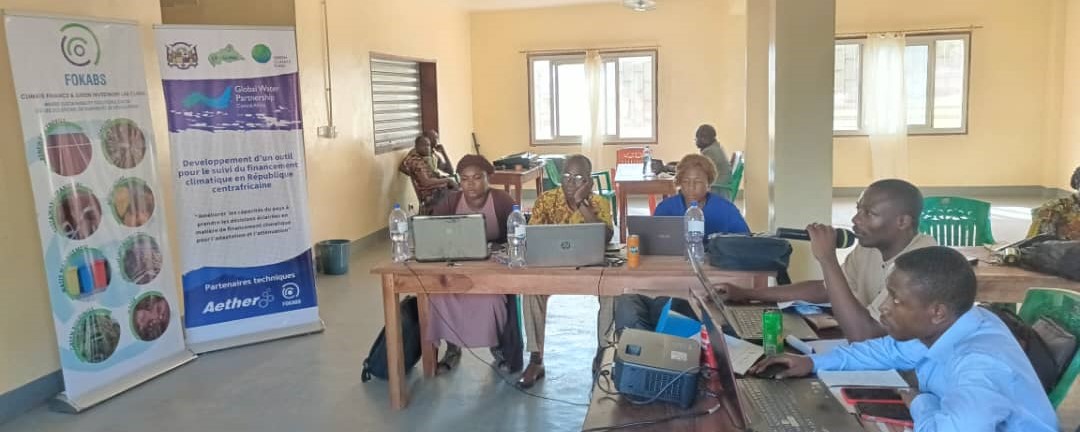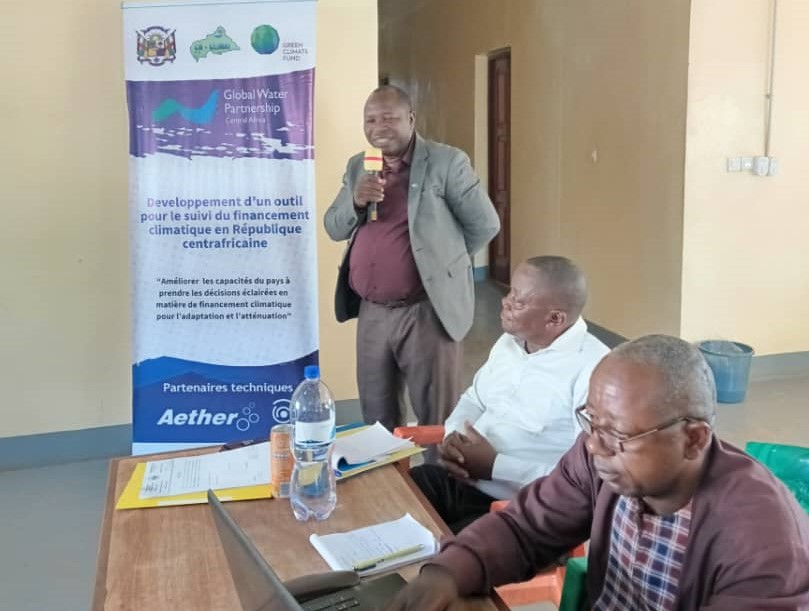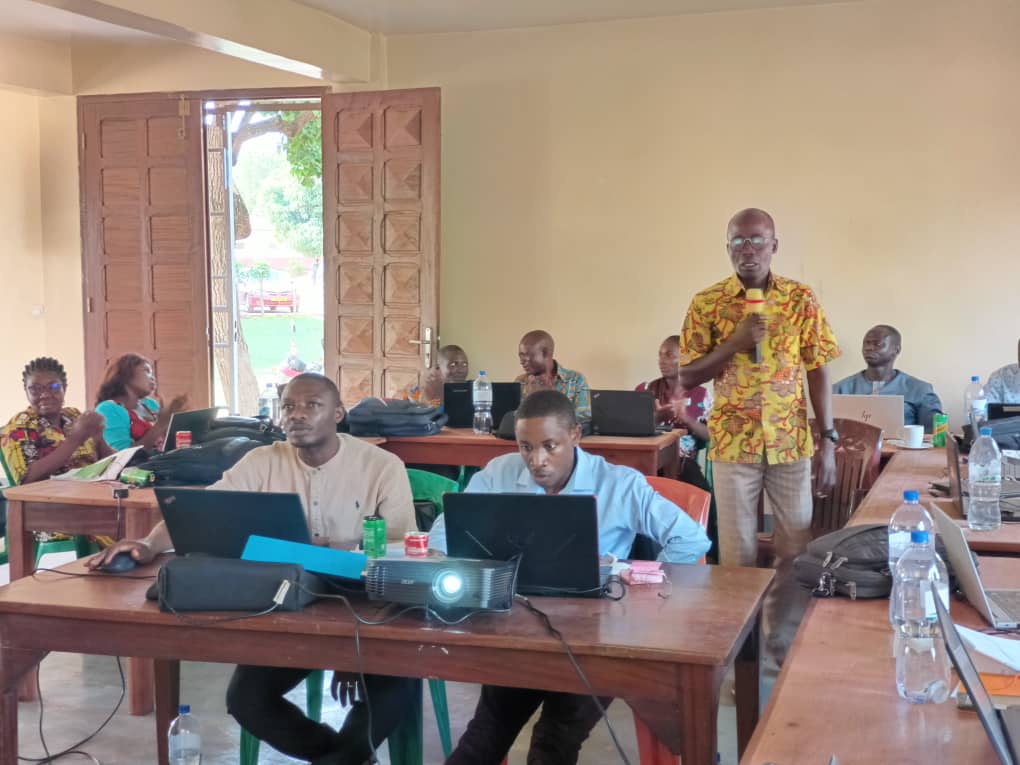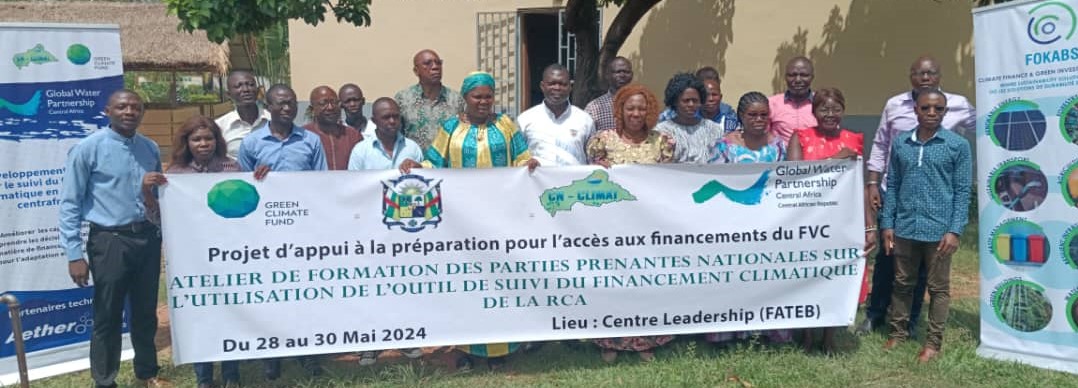The workshop was attended by twenty-six representatives of sectoral administrations, civil society organizations, and a team of international consultants involved in project implementation. This validation workshop follows a series of stakeholder capacity-building training on key concepts of climate finance, functionalities of the climate finance tool, and how to use the tool amongst other details.
The objective of the workshop was to validate the climate financing monitoring tool for CAR developed by the consortium of consulting firms Aether and FOKABS with funding from the Green Climate Fund and support from the Global Water Partnership (GWP). The workshop provided an avenue for the tool to be presented to stakeholders, highlighting its user guide, management system, and financing plan for the tool in the short and medium term.

In the opening ceremony, the GCF project coordinator, Mr. NZANGA Bertrand-Blaise, reiterated the significance of the climate finance tracker tool to the country’s climate adaptation efforts: “With the climate finance tracking tool, CAR can now track all national and international resources allocated to the climate change sector, which will significantly increase its chances of mobilizing climate finance to address climate-related problems plaguing the country.”
The technical session began with a knowledge test based on the last training workshop, followed by a presentation by consultant Kevin FOKOU, a senior expert from the FOKABS consultancy firm. He detailed the functionality of the climate finance tool, highlighting the capacity of the online and offline tools and the data currently fed into the tool, notably SharePoint.
SharePoint Online is the portal or host through which users can access the tool using predetermined login details. The consultant also presented the different functionalities, including the software's menus and sub-menus, namely institutional arrangement, climate project tracking, user groups, language choice options, and several pre-saved documents from various previous workshops. The tool can also be used to export or download files online or offline.

In a follow-up presentation, Mr. Armand Tanoughong, senior manager of the FOKABS consultancy firm, focused on the management system and the short- and long-term climate financing plan, i.e., the opportunities and different strategies for financing by partners at the national and international level, as well as the links to access the different partner platforms.
He presented the main users of the platform, their roles, the associated stakeholders, their responsibilities, and the organizations. Two options were presented by the consultant, with different functionalities, and the choice was made for Microsoft 365 Business Standard at a cost of around $28 million for 5 years.

The presentations were followed by a question-and-answer session to provide more clarity to the participants. After discussions, the following two recommendations were made:
- Define at the national level the encoding nomenclature for all climate-financed projects or projects with a climate component.
- The National Climate Coordination Unit (CNC) should organize capacity-building sessions for the various stakeholders involved in using the tool.
Following the adoption of these recommendations, the CAR climate finance monitoring tool was adopted by all participants, who also appreciated the quality of the training. The representative of the National Climate Coordinator, Mr. David Yangbondo, delivered the closing speech and reassured participants that their validation is a step in the right direction towards the operationalization of the tool, which will track and improve climate finance in the country.
Background
The Central African Republic (CAR), a stakeholder in the Paris Agreement, must report on the climate financing received or needed for adaptation or mitigation. Unfortunately, the country does not have an appropriate system or platform to track all climate financing. This situation is at the root of the country's inability to implement environmental policies and programs and track internal and external financial flows effectively.
To achieve this, the country must have a tool enabling it to meet its climate finance monitoring needs by collecting and sharing accurate information on financial contributions from partners, thereby improving the country's ability to make informed climate financing decisions. In addition, the tool will strengthen the commitment by providing a centralized platform for data entry, consultation, monitoring, reporting, and updating on the progress of climate projects.
It is in line with this that, GWP is acting as an implementing partner in collaboration with the Green Climate Fund's (GCF) Designated National Authority, to support the country in developing this important tool identified as a priority for monitoring climate finance.
